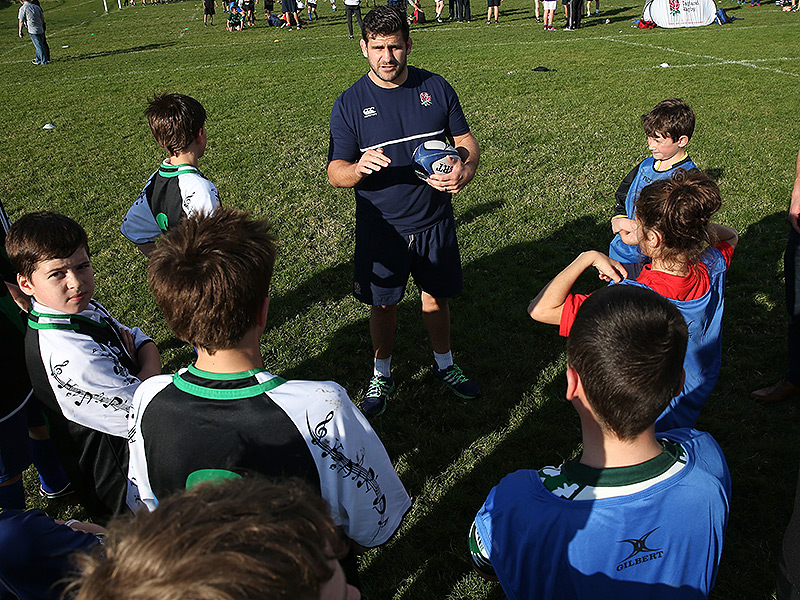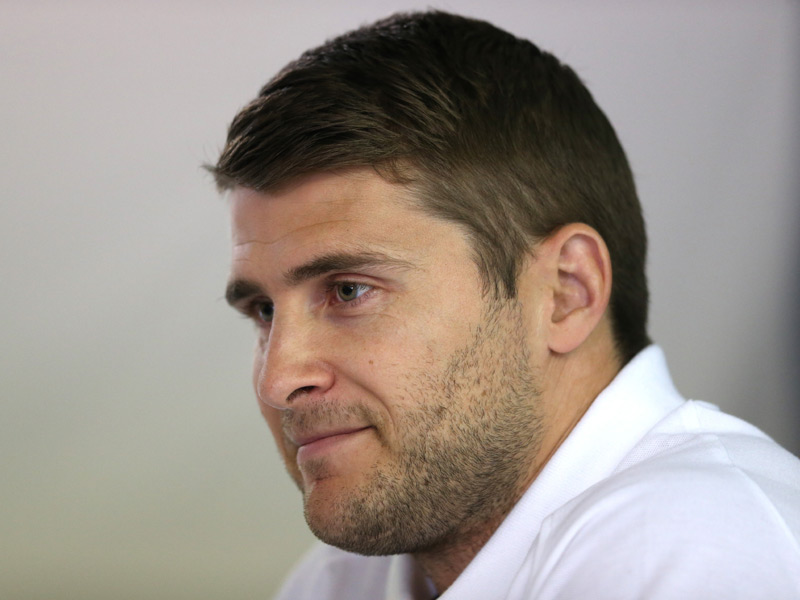Players hit back at 'tackling ban'
In an open letter, the concerned parties warned that school rugby poses a high risk of serious injury and urged educational institutions to instead adopt touch rugby or non-contact rugby.
But players including Ireland No.10 Jonathan Sexton, who has a history of concussion problems, and former England captain Will Carling rejected the calls.
Sexton, who was last year told by a neurologist that he was one heavy blow away from having to consider retirement, dismissed the idea of a tackling ban.
"I don't think you can play rugby without tackling. Then it's not going to be rugby," the Leinster No.10 told Irish radio station Today.
"The IRFU [Irish Rugby Football Union], who look after us unbelievably well, are taking every measure to make sure that player welfare is top of the list and they're doing everything they can.
"They're actually leading the way internationally with looking after players with concussion."
Carling said there were dangers inherent in every sport, tweeting: "So I presume we play cricket with soft ball, no tackling in football, sponge sticks in hockey etc etc???"
England and Saracens scrumhalf Richard Wigglesworth also hit out on Twitter.
"Let's not give these 70 so-called experts the time of day," he wrote.
"Seventy are outnumbered by thousands of people with real knowledge on the benefits of rugby!"
Austin Healy, the England scrumhalf, described touch rugby as a "waste of time".
The letter, signed by sport scholars, academics, doctors and public health professionals, said studies show that the risks of injuries for Under-18 players playing rugby "are high and injuries are often serious".
– 'Life-ending consequences' -"The majority of all injuries occur during contact or collision, such as the tackle and the scrum," the letter said.
"These injuries, which include fractures, ligamentous tears, dislocated shoulders, spinal injuries and head injuries, can have short-term, life-long, and life-ending consequences for children."
The letter noted that many British secondary schools, for students aged 11-18, offered full-contact rugby as a compulsory sporting activity.
It also warned of the dangers of concussion and noted that people who have previously suffered concussion are more likely to suffer it again.
"A link has been found between repeat concussions and cognitive impairment and an association with depression, memory loss and diminished verbal abilities, as well as longer term problems," the letter added.
"Children take longer to recover to normal levels on measures of memory, reaction speed and post-concussive symptoms than adults."
The letter asserted that the government has a duty to inform children about the risks of injury enshrined in the UN Convention on the Rights of the Child.
One of the letter's signatories, Allyson Pollock from London's Queen Mary University, said: "Children are being left exposed to serious and catastrophic risk of injury."
Concussion has become an increasingly contentious issue in modern rugby owing to the increased physicality and speed of the game.
Wales wing George North and England full-back Mike Brown were both sidelined by concussion injuries during last year's Six Nations.
Global governing body World Rugby reminded countries of the need to observe concussion protocols in the build-up to last year's World Cup in England.
A major study of rugby union players carried out by the Auckland University of Technology and partially released last year pointed to a potential link between frequent concussion and brain function.
Agence France-Presse
Ban, walking on pavements, climbing trees, riding your bike and ban being a kid #nannystate #sanitisesociety https://t.co/d2evLr8EiU
— Austin Healey (@IamAustinHealey) March 2, 2016
















































